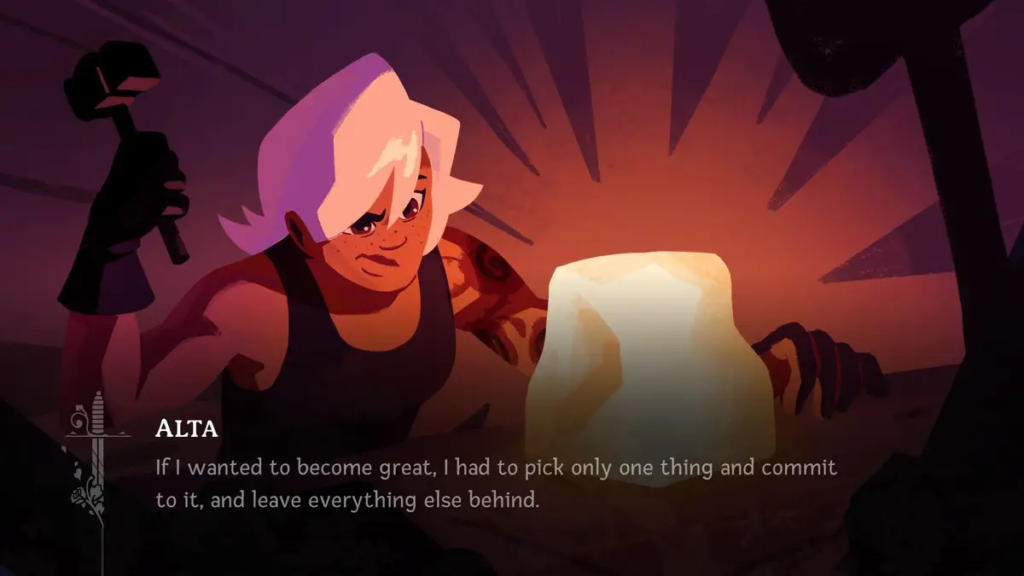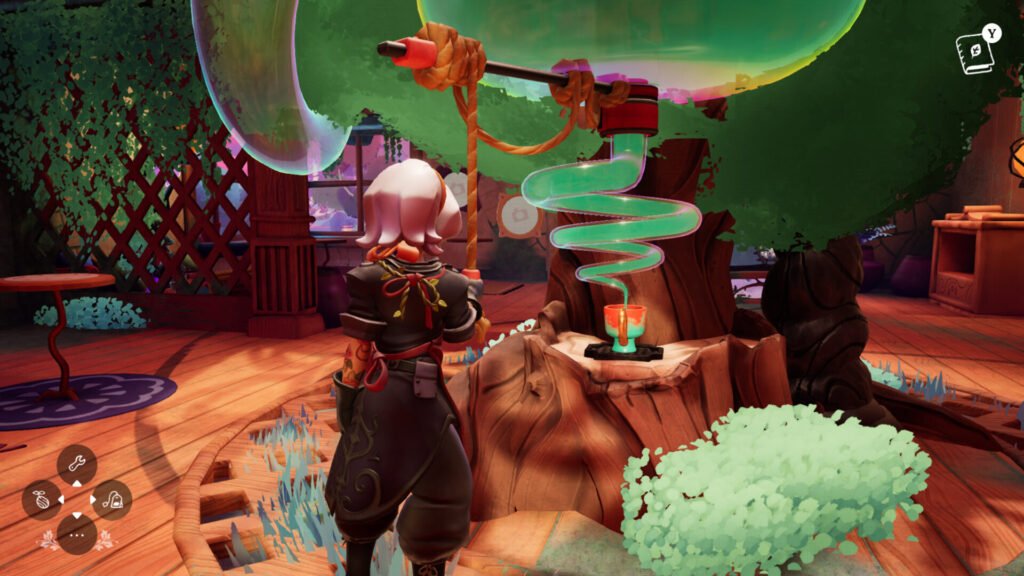From the creator of The Stanley Parable and The Beginner’s Guide comes Wanderstop, a narrative-centric cozy game about change and tea. Playing as a fallen fighter named Alta, you’ll manage a tea shop in a magical forest and tend to the customers who pass through.
Developed by: Ivy Road
Played on: Steam
Length: 12 hours
A review key was provided by Ivy Road.
The first time I found myself emotionally moved by a video game, it was The Stanley Parable. You may know it for its sarcastic narrator and comedic meta-commentary on the gaming industry, or if you want an achievement for saving a baby from a fire for eight hours straight, this is the game for you. But my most vivid memory from The Stanley Parable is an ending nobody talks about: the one where you’re forced to send Stanley to his death by jumping off a platform again and again and again.
That was the moment that solidified the kind of storyteller Davey Wreden was to me. Sharp-witted and painfully self aware, with a touch of morbid hilarity. The kind of writer who couldn’t help but exist within the stories he told. It was clear to me, even then, that The Stanley Parable was a game that couldn’t have come to life without Wreden’s distinct tone of voice. But that vision became crystal after playing his second game, The Beginner’s Guide.
The Beginner’s Guide is much like Wanderstop. Both contain narratives told through the medium of video games, rather than video games that tell a narrative. Both contain deeply vulnerable feelings poured from the heart of its writer directly into the beating core of its characters. Both games show a keen understanding of typical player behaviour and delight in defying your expectations every step of the way.

Where The Beginner’s Guide was more autobiographical in nature, Wanderstop places you in the shoes of Alta, a fallen fighter who finds herself running a tea shop in a magical forest. Every bit of her character screams that she doesn’t belong; whether it is her dark-toned outfit clashing with the pastel-coloured environs, or the occasional fighting move when doing chores around the shop. Even her dialogue choices feel foreign to the genre, often bordering disinterested and sarcastic, instead of the saccharine protagonists we’ve come to expect from games like these.
While Alta is out of place by design, her struggles feel alarmingly familiar. Right in the opening moments of the game, we’re introduced to her passion, her unwavering discipline, and the intense highs of her craft. In the same breath, we’re sucker punched with her crippling burnout, her incessant need for control, and the impossible expectations she places on herself. Paired with beautifully illustrated cutscenes and heart-wrenching voice acting from Kimberly Woods, you’d be right to assume that this game is designed to hurt.
But even with the killing weapon grasped tightly in their hands, Ivy Road’s take on mental health is a unique form of purgatory. Most games will depict mental health problems as a physical enemy that can be defeated, with the player being empowered by friendship or inner strength to overcome their demons. Wanderstop challenges that notion with a more realistic representation of burnout. There are no clear objectives in the game, there are quests that are impossible to complete, and your progress is constantly being reset. There is nothing left to do except to simply become comfortable with helplessness.

So, that’s what you do. You make tea for the travellers who pass through the shop, you tend to the unruly garden, you play with mischievous Pluffins, and sometimes you sit down and do nothing at all. Wanderstop’s gameplay loop is meditative by design, functioning as a comfortable distraction while you let uncomfortable thoughts steep to the backdrop of C418’s soothing soundtrack. Some tea orders and plant combinations may be more challenging than others, but the game never crosses the line into difficult territory. There’s even a Book of Answers if you ever get stumped.
All the while, Boro the tea shopkeeper acts as our constant companion. This jolly-looking eccentric might just be one of my favourite characters in recent history, not least of all because Wreden’s writing shines the brightest here. In a game that could easily be filled with pretty platitudes, each line of dialogue is believably earnest. It is through Boro that the game acknowledges the difficulty of Alta’s struggles and gives her the room to explore her own solutions. He doesn’t sell her the fantasy that things can be fixed, nor does he lie to make her feel better, but offers her a soft place to figure out the hard things.
Wanderstop is ultimately a linear experience, but there is enough open-endedness to leave interpretation up to the player. Whether you feel healed after the experience, or still holding onto grievances, entirely depends on your choices as Alta. There is no right or wrong way to play the game, nor is there a right or wrong way to heal from your pain. In that sense, everyone’s experience with this game is going to be slightly different. Some players are going to get to the end-point faster, while others will need more time to digest, and some may not resonate with the story at all.

Personally, I found it refreshing to play a game about mental health where the end goal isn’t to be cured. As a player, it makes for a frustrating pill to swallow, but there is a catharsis in seeing yourself reflected in Wreden’s truthful characterisation. It is a reminder that you are not alone in this struggle. Sometimes taking a break doesn’t result in productive outcomes, sometimes taking a break only opens your eyes to more problems. But to quote Boro here, ‘seeing’ is a wonderful first step.
Verdict: Pour Me Another Cup
In a genre that is often filled with pretty platitudes, Wanderstop manages to deliver a story about burnout that is uncomfortably true and alarmingly familiar. With writing and direction from The Stanley Parable’s Davey Wreden, the game balances earnest dialogue and light-hearted humour with practiced ease, while the addition of Minecraft’s C418 on the soundtrack feels like a match made in heaven. This is a story that will resonate with anyone who has ever faced burnout in their lives.
Wishlist Wanderstop on Steam, and top up your Steam Wallet on Codashop.












